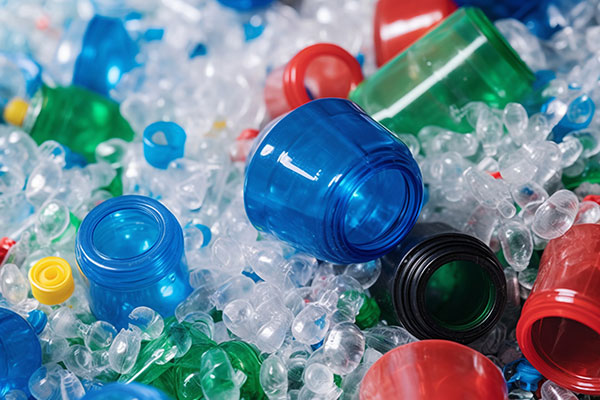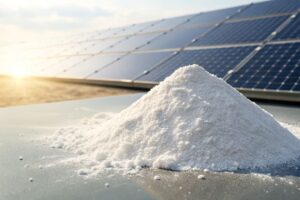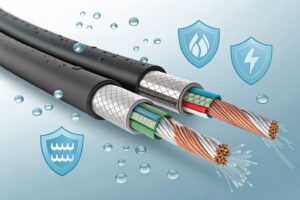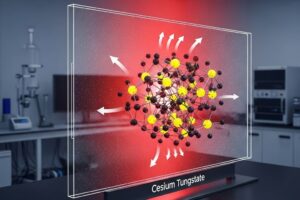Recycled polyethylene terephthalate (rPET) has become an increasingly important trend in plastics and packaging industries. Derived by processing post-consumer PET products for reuse, this form of recycled PET not only saves waste but also significantly lessens environmental impacts.
What is Recycled Polyethylene Terephthalate Material (rPET Material)?
Recycled polyethylene terephthalate material, more commonly referred to as “rPET,” is made by processing recycled PET products such as plastic bottles through recycling technologies and converted back into useable forms through reuse technologies. Reusable forms like this offer similar properties as virgin PET while being more eco-friendly by reducing waste and conserving resources; furthermore it helps move towards circular economies by offering sustainable materials solutions in packaging and textile applications as well.
What is the difference between PET and rPET?
PET (polyethylene terephthalate) and rPET (recycled polyethylene terephthalate) have several differences. PET is made from virgin materials through a manufacturing process. In contrast, rPET is obtained by recycling used PET products. rPET is more environmentally friendly as it reduces waste and conserves resources. PET usually has consistent quality and properties, while the quality of rPET can vary depending on the source and recycling process.
What is intrinsic viscosity in PET resin?
Intrinsic viscosity in PET resin is an important defining characteristic, representing the hydrodynamic volume of polymer chains. A higher intrinsic viscosity typically indicates an increase in molecular weight and extended polymer chains – this property impacts mechanical and physical properties such as strength and toughness of PET products, for instance. Intrinsic viscosity measurements are typically conducted through laboratory tests such as viscometry; its measurement serves an integral role in quality control and product development within PET manufacturing industries worldwide.
Measurement of Intrinsic Viscosity
PET resin’s intrinsic viscosity is typically determined using a viscometer. One method involves monitoring flow times of polymer solutions at various concentrations and plotting reduced viscosity versus concentration to extrapolate to zero concentration for accurate results – thus giving access to its intrinsic viscosity value.
This process requires careful preparation of a polymer solution and accurate measurement of its flow time. Specialized instruments and techniques may be utilized to ensure reliable results, as viscosity is highly temperature dependent; additionally, intrinsic viscosity provides valuable insight into PET resin’s molecular weight and structure.
Increasing Intrinsic Viscosity of PET with Epoxy Chain Extenders
Epoxy chain extenders can help increase the intrinsic viscosity of PET. By reacting with polymer chains to form new bonds and lengthen chains, epoxy chain extenders increase hydrodynamic volume within polymers resulting in greater intrinsic viscosity.
Epoxy chain extenders offer many advantages. Their use can enhance mechanical properties of PET such as strength and toughness while permitting recycled PET with lower intrinsic viscosity to be utilized more effectively and cost efficiently. However, careful management must be exercised in order to attain the desired viscosity increase without negatively affecting other properties.
Relationship Between Molecular Weight and Viscosity
In PET resin, there is a direct relationship between molecular weight and viscosity. Generally, as the molecular weight of PET increases, the viscosity also rises. This is because higher molecular weight means longer polymer chains, which leads to more entanglement and resistance to flow.
A higher viscosity due to increased molecular weight can affect processing and end-use properties. For example, it may require higher processing temperatures and pressures. On the other hand, a higher viscosity can also result in improved mechanical strength and durability of the final product. Understanding this relationship is crucial for optimizing the properties and processing of PET materials.
Epoxy Chain Extenders and Anti-Hydrolysis Agents in Recycled PET
Epoxy chain extenders and anti-hydrolysis agents play an essential part in recycled PET production. Epoxy chain extenders increase molecular weight and intrinsic viscosity of recycled plastic materials, improving their mechanical properties for use in demanding applications while improving quality and performance of recycled materials. This contributes to improving their quality and performance over time.
Anti-hydrolysis agents protect rPET from degradation caused by moisture. By reacting with water molecules and stopping their attack on polymer chains, anti-hydrolysis agents help preserve the material and extend its longevity in humid environments – especially useful when applied directly. Together, these additives contribute to expanding use and sustainability for this form of polyethylene plastics.
Epoxy Chain Extender Reaction mechanism
Epoxy chain extenders typically contain epoxy groups which react with end groups found in PET chains, for example hydroxyl end groups of PET. This interaction forms covalent bonds between PET chains to effectively lengthen them and increase molecular weight and intrinsic viscosity – increasing mechanical strength, toughness and thermal stability making rPET even more suitable for demanding applications.
Anti-Hydrolysis Agent Reaction Mechanism
Anti-hydrolysis agents work by reacting with water or moisture that comes in contact with rPET. Their functional groups scavenge water molecules before they attack PET chains directly. Some anti-hydrolysis agents even contain carbodiimide groups that react with water molecules to form stable urea derivatives – helping protect PET chains against degradation while upholding integrity and performance for longer.
See more about anti-hydrolysis agent.
Conclusion
Recycled PET represents an indispensable sustainable alternative to virgin PET. By understanding and taking advantage of its additives like epoxy chain extenders and anti-hydrolysis agents, recycled PET offers great potential as an eco-friendly choice in multiple applications. By comprehending the significance of such additives in plastics industry sustainability efforts.







